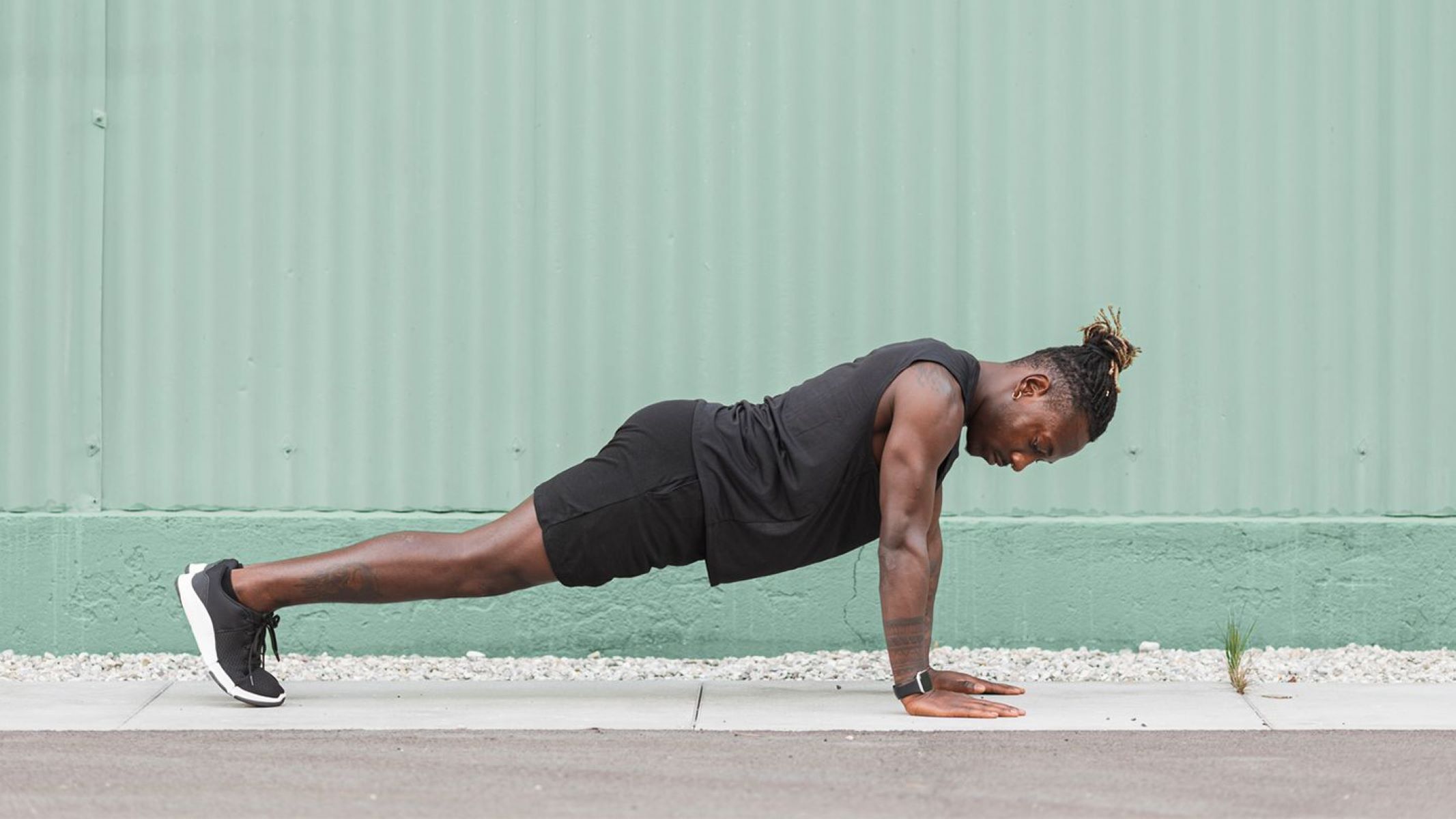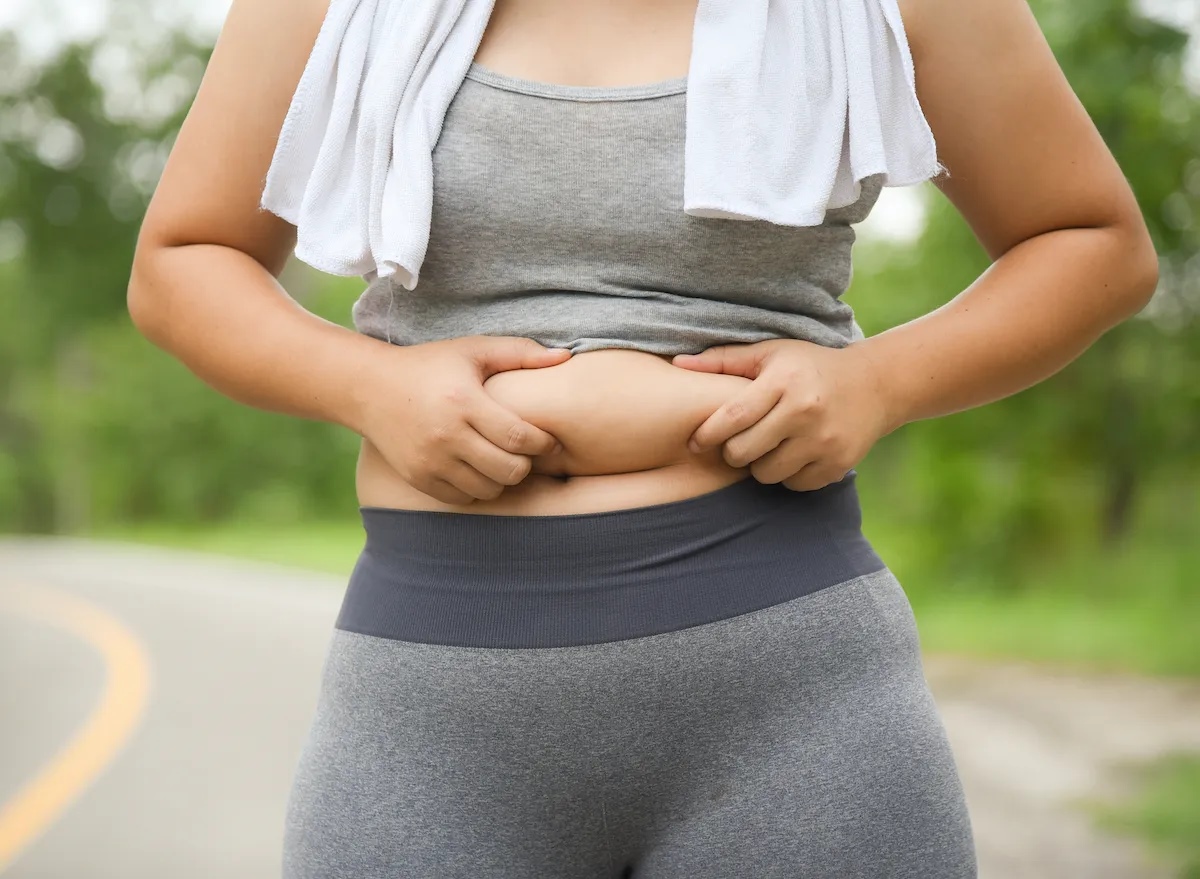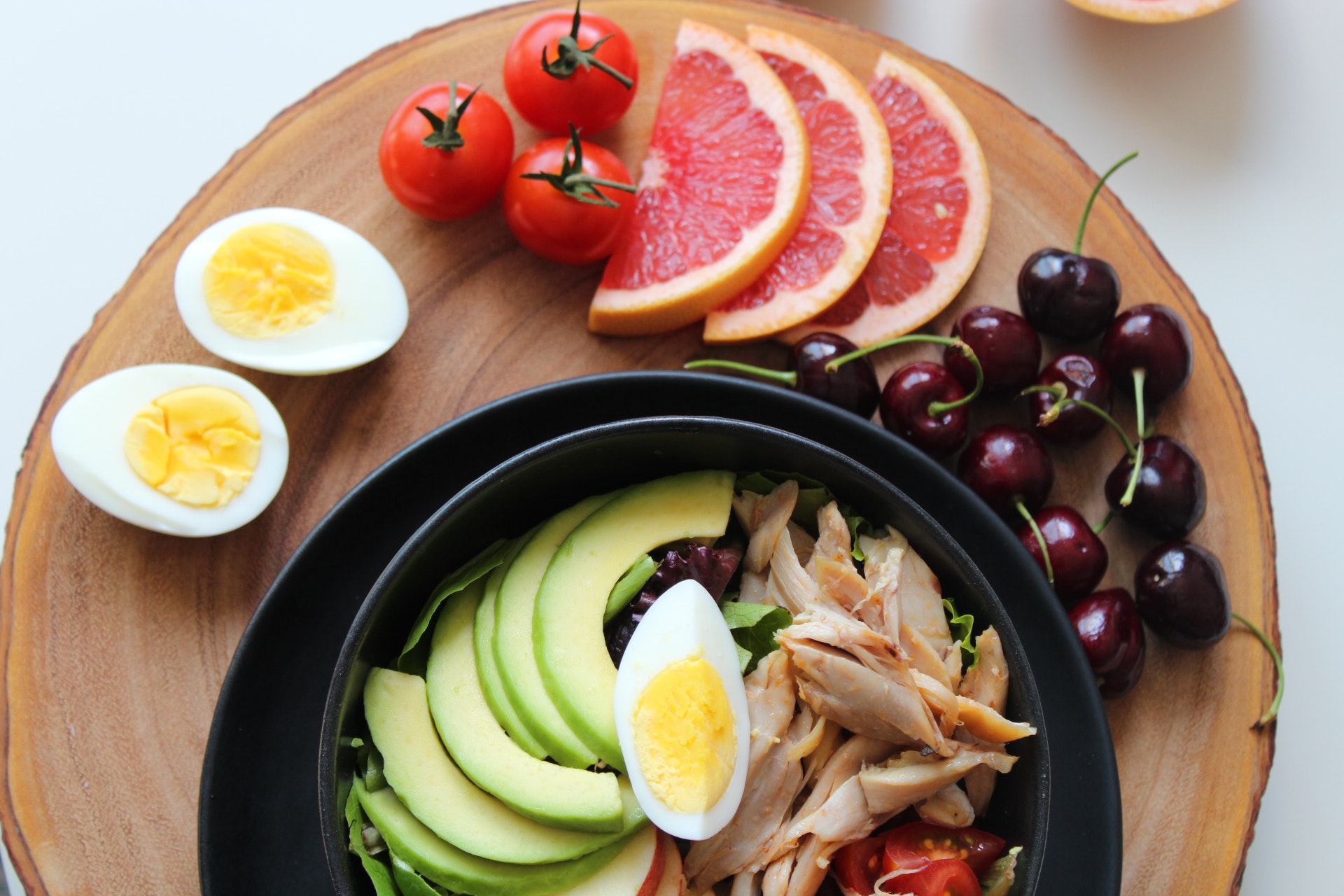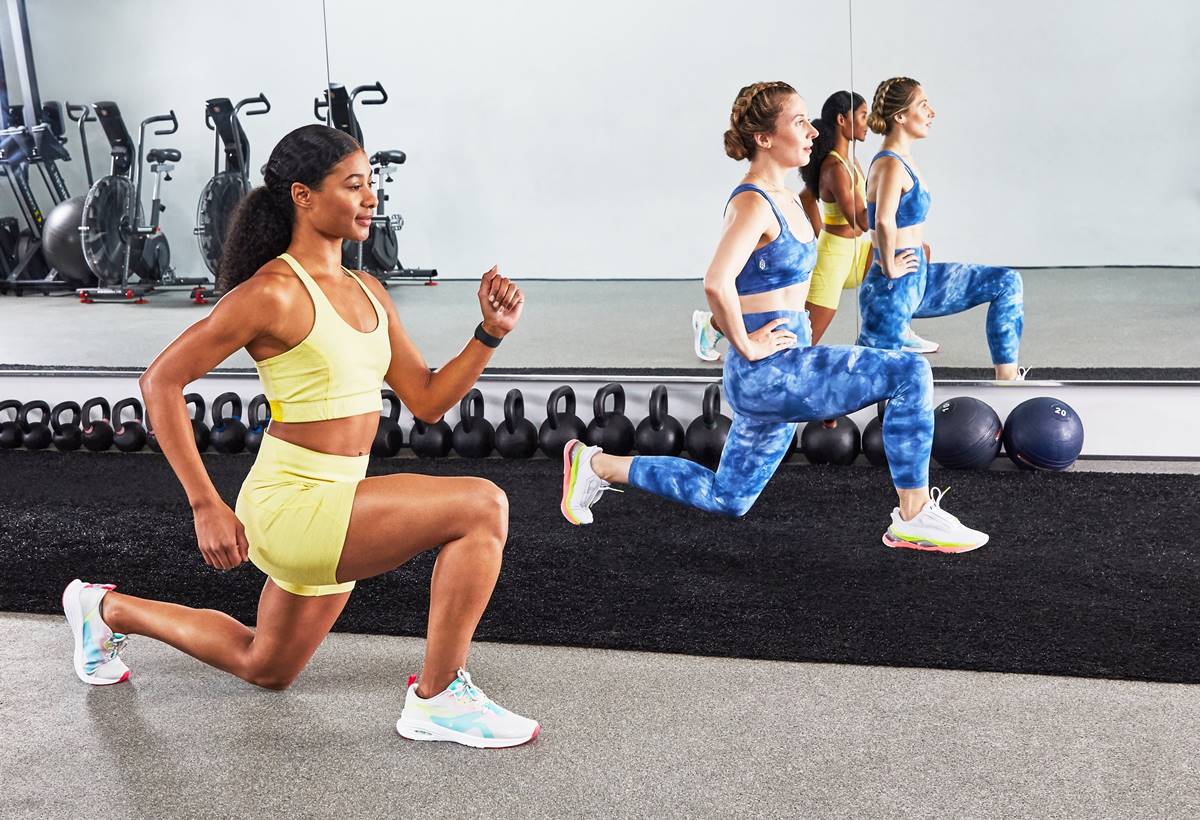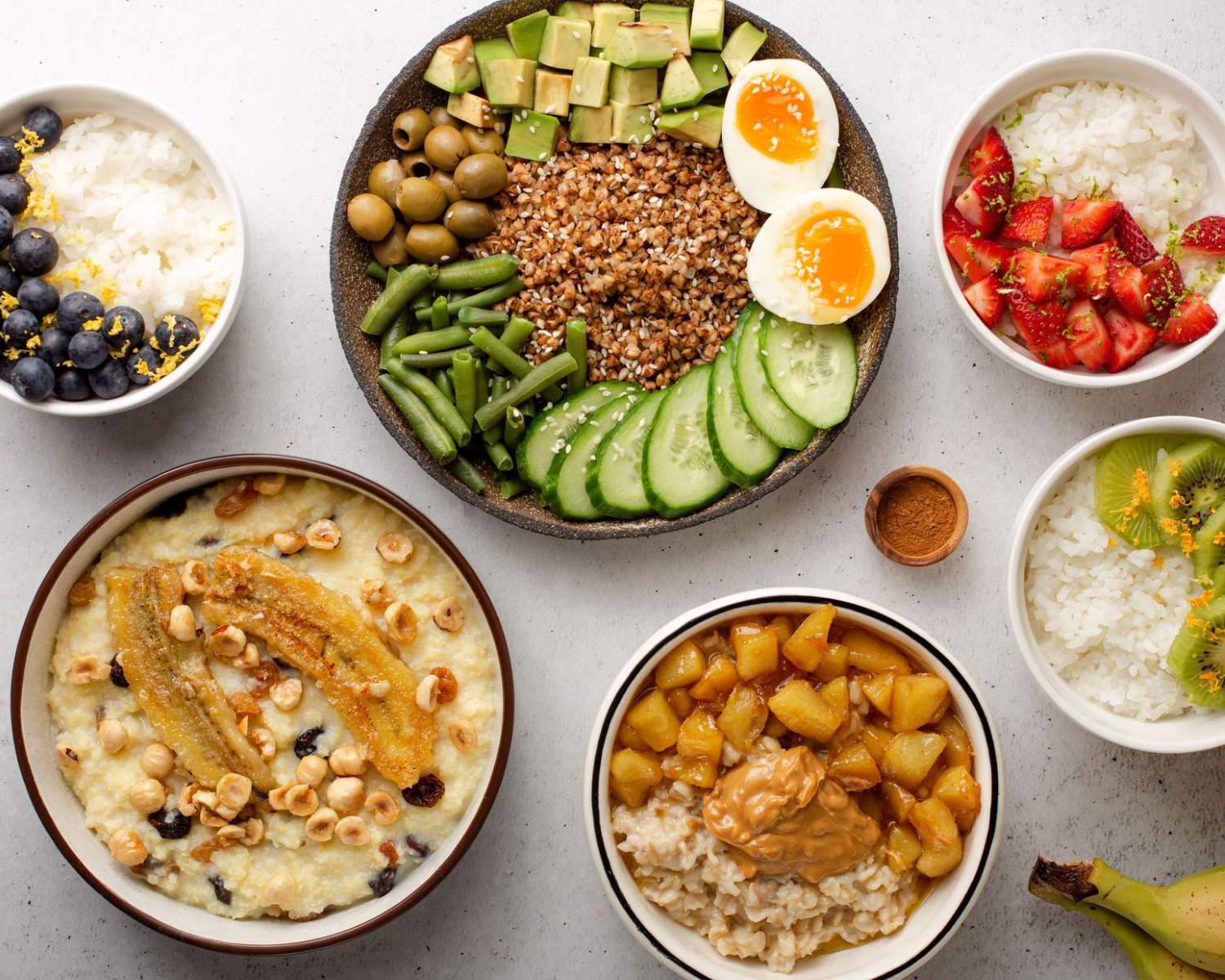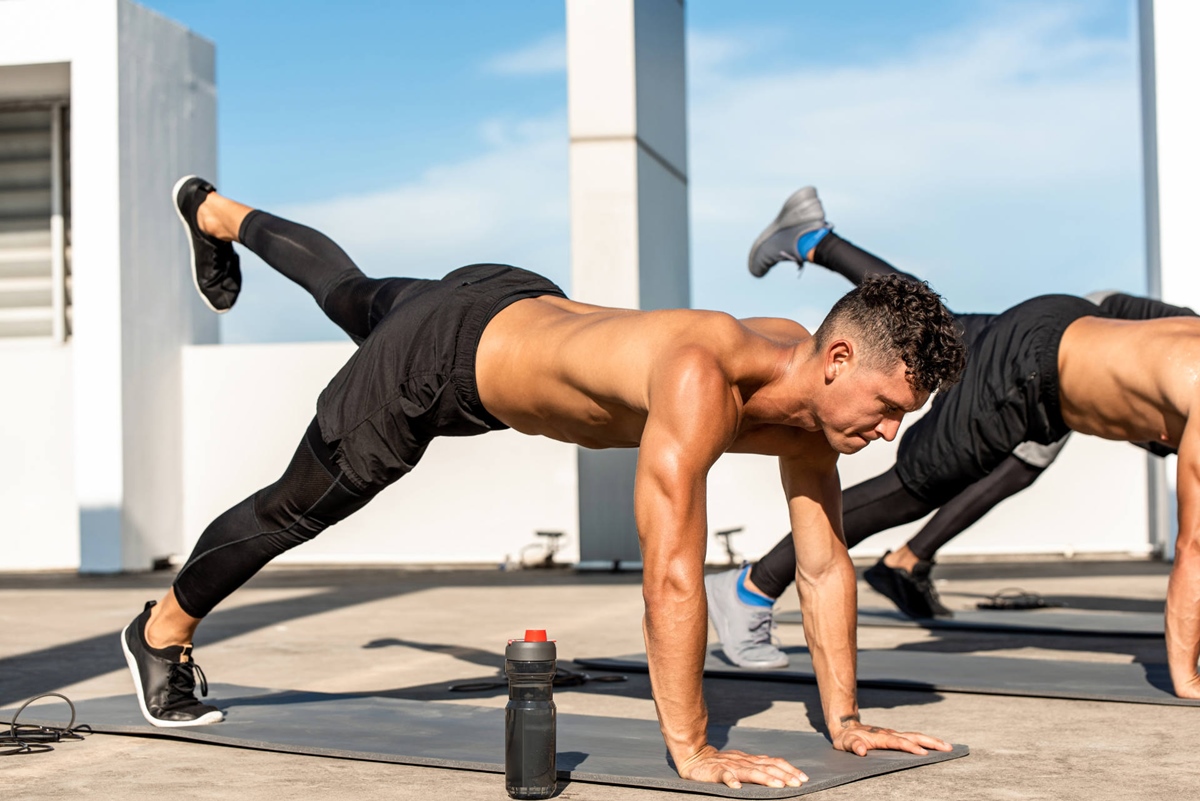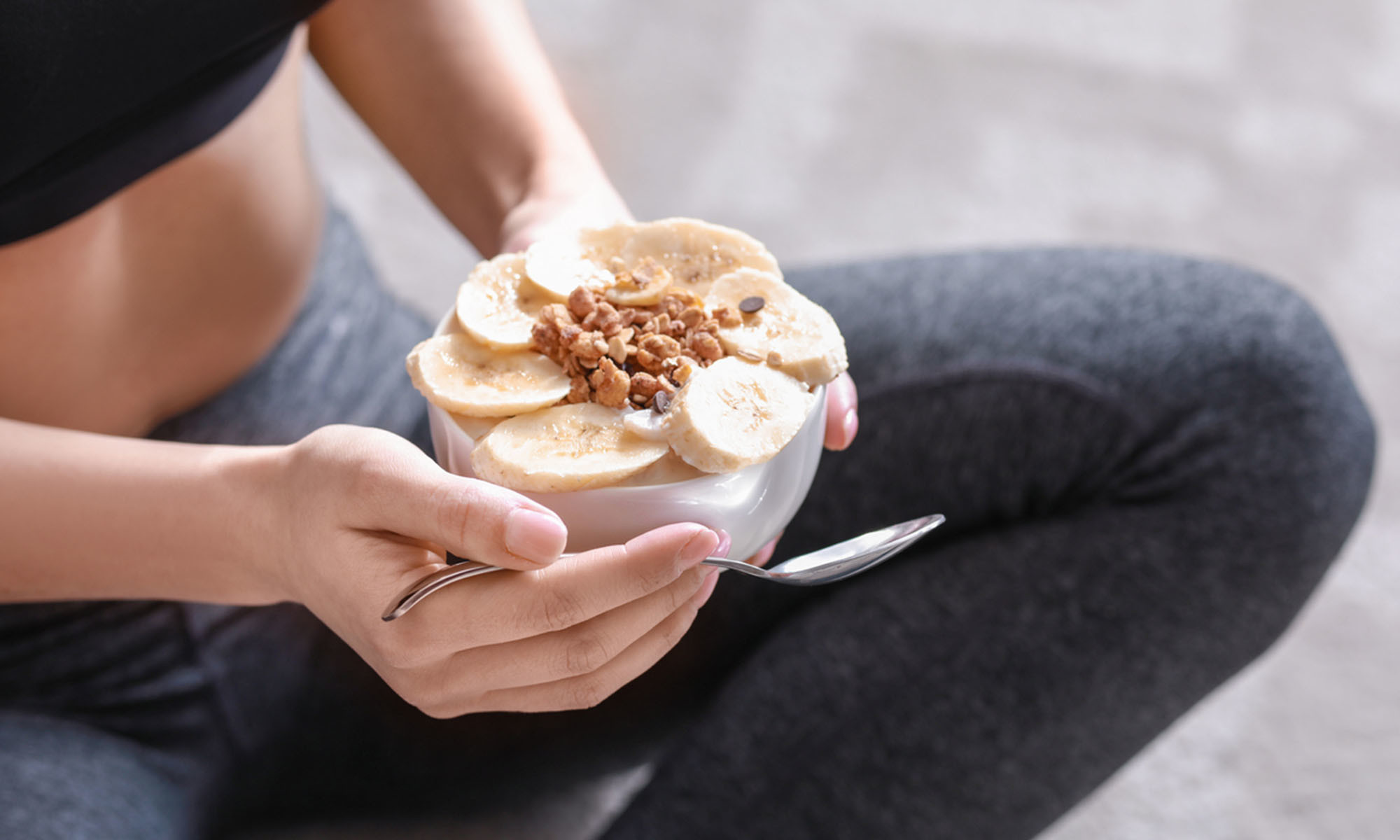

Featured
What To Eat After Cardio Workout
Modified: January 2, 2024
Discover the perfect post-cardio meal options that will help you refuel, recover, and maximize your fitness gains. Explore our featured selection of nutritious dishes ideal for replenishing your energy levels.
Introduction:
Cardiovascular exercise, also known as cardio, is a vital component of any well-rounded fitness routine. Whether you enjoy going for a run, cycling, or jumping rope, cardio workouts offer numerous health benefits, such as improved heart health, increased endurance, and weight management.
While engaging in cardio exercises is crucial for maintaining overall fitness, it’s equally important to pay attention to your post-workout nutrition. What you eat after a cardio session plays a key role in aiding your body’s recovery and maximizing the benefits of your workout.
In this article, we will delve into the topic of post-cardio workout nutrition and explore the macronutrient needs, hydration, and timing aspects to consider. Additionally, we will provide you with some delicious and healthy meal ideas to nourish your body after a cardio session.
By optimizing your post-cardio nutrition, you can enhance your body’s ability to replenish energy stores, repair muscle tissue, and benefit from the overall cardiovascular workout experience. Whether your goal is weight loss, improved athletic performance, or simply maintaining a healthy lifestyle, proper post-cardio nutrition is a game-changer.
So let’s dive in and discover what to eat after a cardio workout to help you feel energized, recover faster, and get the most out of your fitness routine!
Importance of Post-Cardio Workout Nutrition:
When you engage in a cardio workout, your body undergoes a series of changes to meet the increased demand for energy. As a result, your muscles use up stored glycogen, and there is an increase in muscle protein breakdown. To support your body’s recovery and optimize the benefits of your workout, it is crucial to provide it with the right nutrients after completing your cardio session.
Here are several reasons why post-cardio workout nutrition is important:
- Restoring glycogen stores: During cardio exercise, your body depletes its glycogen stores, which are the primary source of energy for muscles. Consuming carbohydrates after your workout helps replenish these stores, allowing your muscles to recover and prepare for future workouts.
- Promoting muscle repair and growth: Cardio workouts can cause microdamage to muscle fibers, especially during high-intensity sessions. Consuming protein after your workout provides the necessary amino acids to repair and rebuild these muscles, supporting their growth and minimizing the risk of injury.
- Aiding recovery and reducing muscle soreness: Post-cardio nutrition plays a crucial role in reducing muscle soreness and accelerating recovery. Proper nutrient intake helps to reduce inflammation, promote circulation, and provide the necessary building blocks for tissue repair, allowing you to bounce back quicker for your next workout.
- Supporting immune function: Intense cardio workouts can temporarily suppress the immune system, making you more susceptible to illness. Consuming a balanced post-workout meal helps boost your immune system by providing essential vitamins, minerals, and antioxidants that support overall health and well-being.
- Facilitating fat burning and weight management: Maintaining a balanced diet after a cardio session can help optimize fat burning and weight management goals. Consuming a combination of protein, carbohydrates, and healthy fats can help stabilize blood sugar levels, control appetite, and promote a healthy metabolism.
Overall, post-cardio workout nutrition plays a critical role in replenishing energy stores, supporting muscle repair and growth, aiding recovery, boosting immune function, and facilitating fat burning. By paying attention to what you eat after your cardio workouts, you can enhance your performance, optimize your results, and support your overall health and fitness journey.
Macronutrient Needs After Cardio Exercise:
After a cardio workout, your body requires specific macronutrients to aid in recovery and replenish energy stores. These macronutrients include protein, carbohydrates, and healthy fats.
Protein: Protein is essential for repairing and building muscle tissue after exercise. Consuming an adequate amount of protein post-cardio workout helps support muscle recovery and growth. Aim for 20-30 grams of high-quality protein from sources such as lean meats, poultry, fish, eggs, Greek yogurt, or plant-based options like tofu or legumes.
Carbohydrates: Carbohydrates are the body’s main source of energy, and consuming them after cardio exercise helps replenish glycogen stores. Opt for complex carbohydrates like whole grains, fruits, and vegetables, which provide sustained energy and essential nutrients. Aim to include a mix of both fast-digesting carbohydrates, such as fruits, and slow-digesting carbohydrates, like whole grains, to provide a balanced release of energy.
Healthy Fats: While carbohydrates are important for replenishing energy stores, including some healthy fats after a cardio workout can provide additional benefits. Healthy fats help with nutrient absorption, hormone production, and inflammation reduction. Incorporate sources like avocados, nuts, seeds, and olive oil to provide a balanced and nutritious post-workout meal.
It’s essential to create a well-rounded meal or snack that includes all three macronutrients. A good rule of thumb is to aim for a ratio of 3:1 carbohydrates to protein, with a moderate amount of healthy fats. This combination will help optimize recovery, support muscle growth, replenish energy levels, and maximize the benefits of your cardio workout.
Remember, the exact macronutrient needs after cardio exercise vary depending on factors such as the intensity and duration of your workout, your body weight, and your overall goals. Experiment with different combinations and listen to your body to find the ratio that works best for you.
Protein-Rich Options for Post-Cardio Workout:
After a cardio workout, consuming protein-rich foods is crucial for muscle repair and growth. Including protein in your post-workout meal or snack helps support recovery and provides the necessary amino acids to rebuild muscle tissue. Here are some protein-rich options to consider:
- Lean Meats: Incorporate lean meats like chicken breast, turkey, or lean cuts of beef into your post-cardio meal. These are excellent sources of high-quality protein and essential amino acids.
- Fish: Fish, such as salmon, tuna, or trout, is rich in protein and omega-3 fatty acids, which have anti-inflammatory properties and support overall health.
- Eggs: Eggs are a convenient and versatile protein source. They contain all the essential amino acids and are packed with nutrients, making them an excellent choice for post-cardio nourishment.
- Greek Yogurt: Greek yogurt is not only rich in protein but also contains probiotics for gut health. Choose plain Greek yogurt and add your favorite fruits or nuts for added nutrients and flavor.
- Tofu or Tempeh: For those following a plant-based diet, tofu and tempeh are protein-packed options. They are versatile and can be incorporated into stir-fries, salads, or wraps.
- Legumes: Legumes, such as lentils, chickpeas, or black beans, are not only a good source of protein but also provide a healthy dose of fiber and other essential nutrients.
- Protein Shakes: Protein shakes or smoothies made with whey or plant-based protein powders can be a convenient and quick option for post-cardio nutrition. Add fruits, vegetables, or nut butter for extra nutrients and flavor.
Remember to choose protein sources that align with your dietary preferences and goals. Aim for 20-30 grams of protein in your post-cardio meal or snack, depending on your body weight and intensity of your workout. Don’t be afraid to get creative with your protein choices to keep your post-workout meals interesting and enjoyable.
Pair your protein-rich option with carbohydrates and healthy fats to create a well-rounded post-cardio meal that optimizes recovery and supports your fitness goals. Experiment with different combinations and listen to your body to find what works best for you.
Carbohydrate Options to Replenish Energy Levels:
Carbohydrates play a vital role in replenishing energy levels after a cardio workout. Consuming the right types of carbohydrates helps replenish glycogen stores and provides the necessary fuel for your muscles. Here are some carbohydrate options to consider for your post-workout nutrition:
- Whole Grains: Whole grains, such as oats, quinoa, brown rice, or whole wheat bread, are excellent sources of complex carbohydrates. They provide sustained energy release, along with essential vitamins, minerals, and fiber.
- Fruits: Fresh fruits are not only delicious but also provide natural sugars and important nutrients. Options like bananas, berries, or oranges are rich in carbohydrates and also offer vitamins, minerals, and antioxidants.
- Sweet Potatoes: Sweet potatoes are a nutritious and delicious source of carbohydrates. They are packed with vitamins, fiber, and complex carbohydrates that can help replenish energy stores and provide a satisfying post-workout meal.
- Vegetables: While lower in carbohydrates compared to grains and fruits, vegetables like spinach, broccoli, or carrots still provide valuable carbohydrates along with important vitamins, minerals, and fiber.
- Legumes: Legumes, such as lentils, beans, or chickpeas, are versatile sources of carbohydrates and plant-based protein. They offer a balance of nutrients and fiber, which supports energy replenishment and overall health.
- Whole Grain Cereals: Opt for whole grain cereals or granola that are low in added sugars and rich in fiber. Pair them with milk or yogurt for an additional protein and calcium boost.
- Smoothies: Blending fruits, vegetables, and yogurt or milk can create a delicious and refreshing post-workout smoothie. Add some oats, chia seeds, or nut butter for extra carbohydrates and healthy fats.
Adjust the amount of carbohydrates based on the intensity and duration of your cardio workout, as well as your individual goals and dietary needs. Including a mix of fast-digesting carbohydrates, like fruits, and slow-digesting carbohydrates, like whole grains, can provide a balanced release of energy and support your recovery.
Remember to listen to your body and choose carbohydrate sources that work best for you. Aim to include carbohydrates as part of a well-rounded post-cardio meal, along with protein and healthy fats, to optimize recovery and refuel your body for the next workout.
Healthy Fats for Post-Cardio Workout Recovery:
While carbohydrates and protein are often the focus of post-workout nutrition, including healthy fats in your diet after a cardio workout is equally important. Healthy fats provide essential nutrients, aid in nutrient absorption, and support overall recovery. Here are some healthy fat options to consider for your post-cardio recovery:
- Avocados: Avocados are a rich source of monounsaturated fats, which are heart-healthy and provide a creamy texture. Add sliced avocados to salads, sandwiches, or wraps for a nutrient-dense and satisfying post-workout meal.
- Nuts and Seeds: Almonds, walnuts, chia seeds, flaxseeds, and hemp seeds are high in healthy fats, as well as other important nutrients such as fiber and antioxidants. Enjoy a handful of nuts or sprinkle seeds on top of yogurt, salads, or smoothies.
- Olive Oil: Extra virgin olive oil is a staple in Mediterranean cuisine and is rich in monounsaturated fats and antioxidants. Use it as a dressing for salads or drizzle it over roasted vegetables for a delicious dose of healthy fats.
- Coconut: Coconut is a versatile ingredient that provides healthful fats. Use coconut oil for cooking or add coconut flakes or coconut milk to smoothies, curries, or baked goods.
- Fatty Fish: Fish such as salmon, trout, and mackerel are excellent sources of omega-3 fatty acids, which have anti-inflammatory properties and support brain health. Include grilled or baked fish as a protein and healthy fat source in your post-cardio meal.
- Nut Butter: Natural nut butters, such as almond or peanut butter, are great sources of healthy fats. Spread them on whole grain toast, apple slices, or add them to smoothies for a creamy and nutrient-rich post-workout snack.
- Dark Chocolate: Dark chocolate with a high cocoa content (70% or more) provides healthy fats and antioxidants. Enjoy a small piece of dark chocolate as a treat after your cardio workout.
It’s important to note that while healthy fats offer numerous benefits, they are also dense in calories. Be mindful of portion sizes, especially if weight management is a goal. Aim to include a moderate amount of healthy fats in your post-cardio meal or snack to support recovery, nutrient absorption, and overall health.
Remember, variety is key when it comes to incorporating healthy fats into your diet. Experiment with different sources, and find the options that you enjoy the most. Combine healthy fats with protein and carbohydrates to create a balanced and satisfying post-cardio meal that aids in recovery and nourishes your body.
Hydration After a Cardio Session:
Staying properly hydrated after a cardio workout is essential for your overall well-being and optimal recovery. During exercise, you lose fluids through sweat, and it’s important to replenish those lost fluids to maintain proper hydration levels. Here are some key considerations for hydration after a cardio session:
- Water: Water should be your go-to choice for hydration. It’s calorie-free, refreshing, and essential for maintaining fluid balance in your body. Aim to drink water immediately after your cardio workout and continue hydrating throughout the day.
- Electrolytes: When you sweat, you not only lose water but also essential electrolytes like sodium, potassium, and magnesium. Replenishing these electrolytes is important, especially after intense or prolonged cardio workouts. Consider consuming electrolyte-rich drinks or adding electrolyte-enhanced tablets to your water to replenish these essential minerals.
- Coconut Water: Coconut water is a natural electrolyte-rich beverage that can be a great option for hydration after cardio exercise. It contains potassium, magnesium, and other minerals that help replenish electrolytes and keep you hydrated.
- Sports Drinks: Sports drinks can be beneficial for replenishing electrolytes and providing carbohydrates and hydration for longer, more intense workouts. However, be mindful of the added sugars and calories in some commercial sports drinks. Opt for low-sugar or homemade versions, or dilute them with water to reduce the overall sugar content.
- Monitor Your Urine Color: Pay attention to the color of your urine as an indicator of hydration. Pale, light yellow urine indicates proper hydration, while dark yellow urine suggests dehydration. Aim for light-colored urine as a sign of adequate hydration.
- Drink Before You’re Thirsty: Thirst is a late indicator of dehydration, so it’s important to drink fluids before you feel thirsty. Set a hydration schedule and aim to sip water throughout the day, especially after your workout.
- Individual Hydration Needs: Everyone’s hydration needs are different, depending on factors like body weight, intensity of the workout, weather conditions, and individual sweat rates. Listen to your body, and adjust your fluid intake accordingly.
Remember, staying properly hydrated after a cardio workout is key for maintaining performance, avoiding fatigue, and supporting recovery. Make hydration a priority by incorporating water, electrolytes, and hydrating foods into your post-cardio routine.
Timing of Post-Cardio Exercise Meals:
The timing of your post-cardio exercise meal plays a crucial role in maximizing recovery, replenishing energy stores, and supporting your fitness goals. Here are some key points to consider when it comes to the timing of your post-cardio meals:
- Eat Within 30 Minutes to 1 Hour: It is recommended to consume a post-workout meal or snack within 30 minutes to 1 hour after completing your cardio session. This timing is crucial as it allows the body to efficiently absorb the nutrients and begin the recovery process.
- Protein and Carbohydrate Combination: Aim to include a mix of protein and carbohydrates in your post-workout meal. Combining the two nutrients helps replenish glycogen stores and provide the necessary amino acids for muscle repair and growth.
- Fast-Digesting Carbohydrates: Include fast-digesting carbohydrates, such as fruits or sports drinks, immediately after your workout. These sources provide quick replenishment of glycogen stores and assist in overall recovery.
- Pre-Workout Nutrition: If you haven’t consumed a pre-workout meal or snack, it’s even more important to prioritize your post-cardio nutrition. Your body may have tapped into its glycogen stores during the workout, making it crucial to refuel post-exercise.
- Hydration: Don’t forget to hydrate immediately after your cardio session. Drink water or electrolyte-rich fluids to replenish the fluids lost through sweat during your workout.
- Listen to Your Body: Pay attention to your body’s hunger and satiety cues. If you’re not hungry right after your workout, give yourself some time and eat when you feel ready. However, be mindful not to delay your post-workout meal for too long, as it can hinder recovery.
- Plan Ahead: If you’re short on time after your workout, prepare simple and portable post-cardio snacks in advance. This can include protein bars, Greek yogurt cups, or pre-cut fruits and vegetables for quick and convenient replenishment.
Keep in mind that individual factors, such as body composition, fitness goals, and the intensity of your cardio workout, may influence your specific post-cardio nutrition needs and timing. Experiment with different meal timings and combinations to find what works best for your body and supports your overall fitness journey.
Remember, consistency is key. Aim to make post-cardio nutrition a regular part of your fitness routine to optimize recovery, maximize your workout benefits, and support your progress towards your fitness goals.
Sample Meal Ideas for Post-Cardio Workout:
Creating well-balanced and nutritious meals after a cardio workout is essential for recovery and replenishing energy levels. Here are some sample meal ideas that combine protein, carbohydrates, and healthy fats to help you refuel and support your post-cardio recovery:
- Grilled Chicken with Quinoa and Roasted Vegetables: Grill a chicken breast for lean protein, serve it with a side of quinoa for complex carbohydrates, and add a variety of roasted vegetables for fiber and essential nutrients.
- Salmon with Sweet Potato and Steamed Broccoli: Cook a fillet of salmon for a dose of omega-3 fatty acids and protein. Pair it with a sweet potato for carbohydrates and steamed broccoli for added vitamins and minerals.
- Turkey Wrap with Whole Wheat Tortilla and Avocado: Fill a whole wheat tortilla with sliced turkey breast, avocado, lettuce, and tomato for a protein-packed and healthy fats-filled wrap. Add some hummus for extra flavor and nutrients.
- Greek Yogurt with Mixed Berries and Almonds: Enjoy a bowl of Greek yogurt topped with mixed berries for natural sugars, antioxidants, and vitamins. Sprinkle some almonds for healthy fats and added texture.
- Protein Smoothie with Banana, Spinach, and Nut Butter: Blend a ripe banana, a handful of spinach, your choice of protein powder, and a spoonful of nut butter. Add water or almond milk for desired consistency. This smoothie provides a balanced combination of protein, carbohydrates, and healthy fats.
- Vegetable Stir-Fry with Tofu and Brown Rice: Sauté a mix of colorful vegetables like bell peppers, broccoli, and snap peas, along with cubed tofu for a plant-based protein source. Serve it over a bed of brown rice for complex carbohydrates.
- Omelette with Whole Grain Toast and Avocado: Whip up an omelette with egg whites and your choice of veggies. Serve it with a slice of whole grain toast and some avocado slices for a balanced and satisfying meal.
These are just a few examples of post-cardio meal ideas to get you started. Remember to customize these meals to your taste preferences and dietary needs. Incorporate a mix of lean proteins, complex carbohydrates, and healthy fats to create balanced and nutritious meals that support your post-workout recovery.
Additionally, make sure to adjust portion sizes based on your individual goals, body weight, and the intensity of your cardio workout. With some creativity and planning, you can enjoy delicious meals that aid in recovery, energize your body, and keep you on track towards your fitness goals.
Conclusion:
Optimizing your post-cardio workout nutrition is essential for maximizing the benefits of your exercise routine, aiding in recovery, and supporting your overall health and fitness goals. By paying attention to what you eat, when you eat it, and the macronutrient composition of your meals, you can enhance your body’s ability to replenish energy stores, repair muscles, and promote overall recovery.
Remember to include a mix of protein, carbohydrates, and healthy fats in your post-cardio meals to provide the necessary nutrients for muscle repair and growth, replenish glycogen stores, and support overall recovery. Lean meats, fish, poultry, tofu, whole grains, fruits, vegetables, nuts, and seeds are excellent options to include in your post-workout nutrition regime.
Hydration is just as important as nutrition after a cardio workout. Be sure to replenish lost fluids by drinking water and electrolyte-rich beverages to maintain proper hydration levels and support optimal recovery.
Timing is also key in post-cardio nutrition. Aim to consume a meal or snack containing protein and carbohydrates within 30 minutes to 1 hour after your workout to take advantage of the body’s increased nutrient absorption. Planning and preparation can help ensure you have healthy and convenient options available to fuel your body effectively.
Lastly, listen to your body and adjust your post-cardio nutrition according to your individual needs, goals, and preferences. Everyone’s requirements may vary, so it’s essential to find what works best for you and supports your overall fitness journey.
By incorporating these post-cardio nutrition principles into your routine, you can optimize your recovery, fuel your body for future workouts, and achieve your fitness aspirations. So, make the most out of your cardio exercise by nourishing your body with the right nutrients at the right time!
